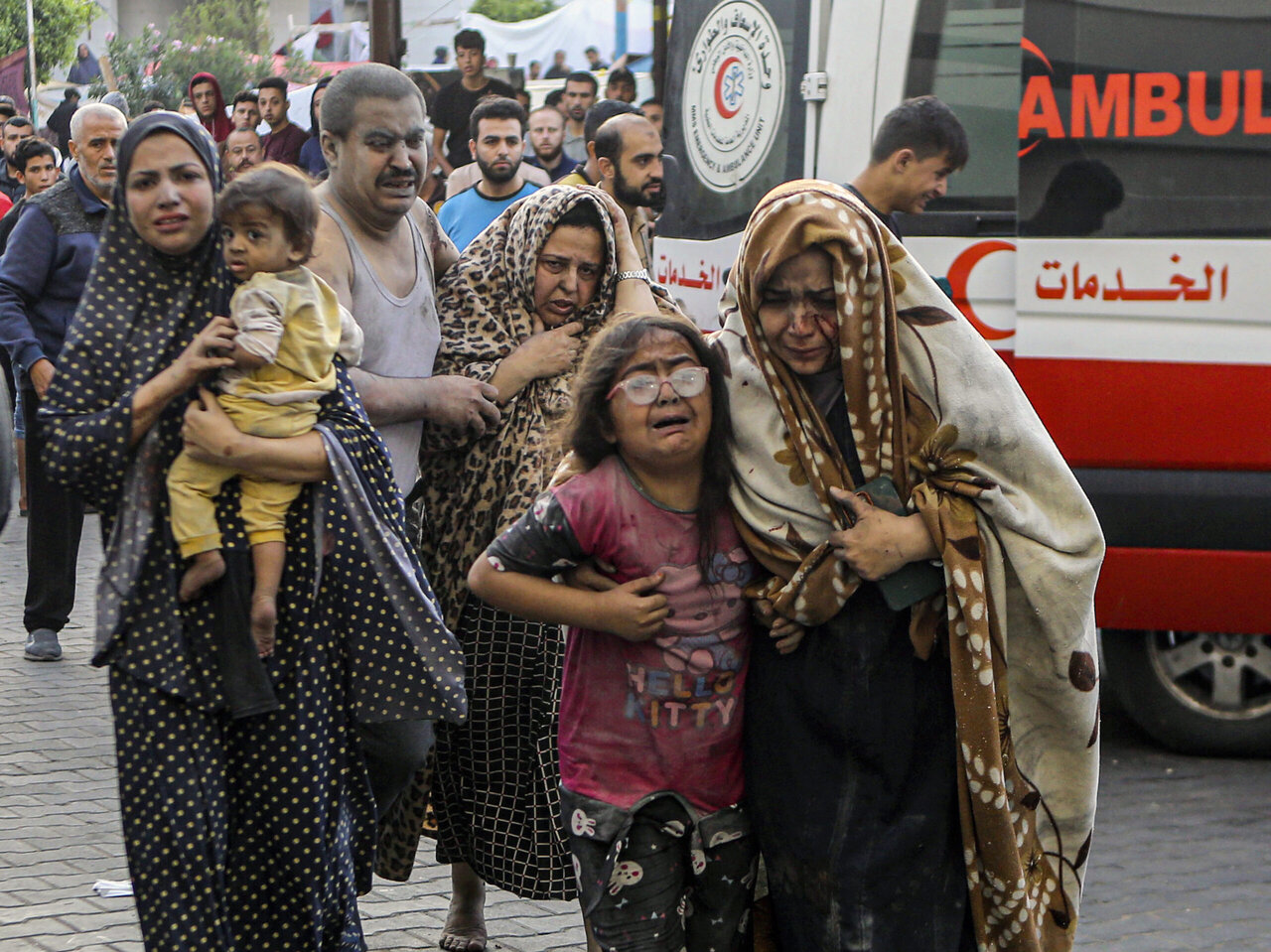Fears grow over potential Israeli genocide in Rafah

TEHRAN - The Palestinian city of Rafah in the southern Gaza Strip could become the scene of another Israeli genocide amid the international community’s failure to put a halt to the regime’s killing machine in the besieged territory.
According to UN figures, more than half of Gaza’s population of 2.3 million people is now crammed into Rafah and surrounding areas.
Rafah which is close to Egypt’s border, remains the last refuge for Gaza residents who have fled their homes in the wake of Israel’s relentless air and ground strikes.
Martin Griffiths, the UN’s humanitarian aid chief, says the population of Rafah has “increased five-fold” and families trying to escape the fighting are packed into shelters and sleeping in the open.
Israeli media said on Monday that the regime’s authorities are reviewing military plans for an attack on Rafah.
Earlier, the Israeli war minister warned that the city would be the regime’s next target.
"We will also reach the areas where we have not yet fought in the center of the Gaza Strip and in the south, and especially the last remaining (stronghold) of Hamas in Rafah," Yoav Gallant said.
Gallant is trying to justify a new potential massacre in Rafah under the pretext of targeting Hamas.
Such remarks are reminiscent of similar excuses the regime made up to storm al-Shifa hospital.
In November, the Israeli army raided the medical facility and committed a massacre there. It claimed that Hamas was using al-Shifa as a command center but failed to provide any ample evidence.
Following Gallant’s threat, a senior Palestinian official urged the international community to step in and prevent attacks on Rafah.
“Any military operations in Rafah – with its limited space and crowdedness with over 1.5 million Palestinians displaced by the Israeli army – would lead to brutal massacres unprecedented in modern history,” Mustafa Barghouti from the Palestinian National Initiative party said.
The UN Office for the Coordination of Humanitarian Affairs (OCHA) also warned that a potential ground assault on Rafah could lead to large scale loss of civilian lives.
“Under international humanitarian law, indiscriminate bombing of densely populated areas may amount to war crimes,” Jens Laerke, the OCHA spokesperson, said at a briefing in Geneva.
Several rights groups have also warned that many people will be killed if Israel launches an offensive against Rafah.
Palestinian residents of Gaza fear that a thrust into Rafah would drive them out of the strip once and for all into Egypt.
Israel’s plan all along has been to forcibly expel the Palestinian population of the Gaza Strip to make way for its direct control over the territory.
According to a document that was leaked in October, the Israeli Intelligence Ministry had called on the regime’s army to evacuate Gaza’s civilian population to Egypt’s Sinai.
At that time the Egyptian president dismissed the idea.
“Egyptians in their millions would reject the forced displacement of Palestinians into Sinai. Egypt rejects any attempt to resolve the Palestinian issue by military means or through the forced displacement of Palestinians from their land, which would come at the expense of the countries of the region,” Abdel Fatah al-Sisi said in October.
Soon after Israel launched its war on Gaza on October 7, the regime’s military began ordering Palestinians in the northern half of the territory to leave their homes. However, Israeli warplanes continued to strike the southern half, where residents had been told to take refuge.
Israel eventually expanded evacuation orders to southern parts of the Gaza Strip, including the city of Khan Younis and surrounding areas, over the course of its onslaught.
Khan Younis has been the focus of Israel’s deadly ground offensive over the past weeks.
The OCHA says tens of thousands of people have fled and continue to flee from Khan Younis.
Khan Younis and Rafah were among areas that had been designated as “safe zone” by Israel.
The regime is again forcing Palestinian civilians to leave and go to new so-called safe zones, but they don’t have anywhere else to go.
Amid fears over Israel’s imminent raid into Rafah, two U.S.-based military think tanks said the Israeli army has launched a new “clearing operation” in central and northern Gaza City.
According to the Institute for the Study of War (ISW) and the Critical Threats Project (CTP), Israel plans to empty all humanitarian shelters in northern Gaza under the pretext of defeating resistance groups like Hamas.
As Israel continues the Gaza war, Griffiths warned that the conflict in West Asia is a “wildfire” that threatens to consume the West Bank, Lebanon and the wider region.
He added that indiscriminate bombing of civilian areas and depriving Gaza’s population of the essentials for survival “may amount to war crimes”.
International organizations have previously issued similar warnings.
The U.S. has also called for de-escalation. Some of Washington’s closest Western allies have also criticized Israel for continuing its brutal war on Gaza.
But, as fears mount over the spillover of the Israeli war into the entire region, Western countries have taken no practical action to force Tel Aviv to bring a halt to its war of genocide in Gaza.
Western countries should keep in mind that actions speak louder than words.
Leave a Comment